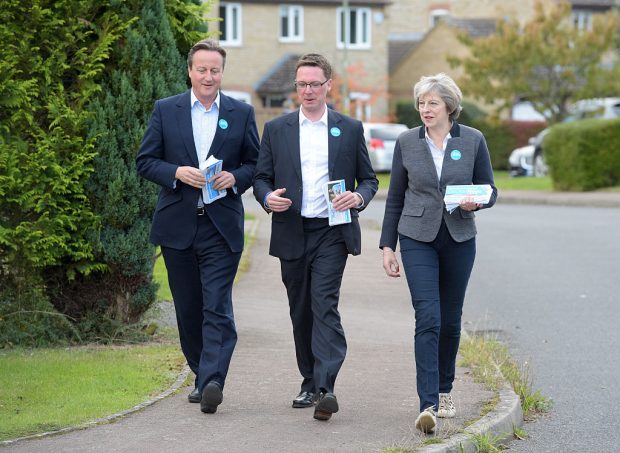It’s no surprise that the Tories held their seat overnight in the Witney by-election. Yet what seems remarkable (at least on the face of it) is the extent of the swing back towards the Lib Dems. The party saw its share of the vote jump from seven per cent two years ago to nearly a third of the vote this time around. That pushed the party’s candidate, Liz Leffman, into second place and has got Tim Farron excited. The Lib Dem leader went as far as saying the result shows the ‘Liberal Democrats are back in the political big time’. That’s not quite the case yet. After all, this is a party which started the night with eight MPs and wakes up this morning with the same number. But while the Lib Dems looked dead and buried two years ago, there is now, at least, the sign of life. So what does Witney tell us about the prospect of a yellow revival?
It’s certainly the case that the Lib Dems benefited from a dip in Tory support: in 2015, Witney was the 12th safest Conservative seat in the country and David Cameron was re-elected with a majority of over 25,000. Last night, though, that margin was slashed to just 5,000, with the Tory’s new MP Robert Courts winning the backing of 45 per cent of those who voted, down from his predecessor’s 60 per cent. Although the reduction of that margin looks worrying for the Tories and optimistic for the Lib Dems, it’s worth remembering that the Lib Dems campaigned relentlessly in Witney and tipped huge resources into this battle – an easy thing to do in a standalone by-election but impossible to replicate at a General Election. Farron, for his part, made five visits to the constituency and did his best to turn the contest into a referendum on the PM’s Brexit stance – a savvy tactic in an area where voters backed ‘Remain’ by a healthy margin of seven per cent. The Lib Dem old guard in the form of Nick Clegg, Menzies Campbell and Paddy Ashdown also paid visits. And lower turnout, at 47 per cent, compared to 73 per cent in 2015 is another factor likely to have helped the Lib Dems steal a greater share of the vote.
The Lib Dems will also have been made to look good by the extent to which they were trounced in 2015. Their dismal performance in Witney two years ago, when their candidate Andy Graham earned nearly 13 per cent less of the vote than the party won in the seat in 2010, was never going to be repeated this time around. But avoiding being crushed at the ballot box doesn’t equate to electoral success. For what it’s worth, though, the result does indicate that at least some Lib Dem voters are slowly coming back on board. This backs up polling released this week by Ipsos Mori, which showed the party had benefited from a slight bounce in the polling to push them into third place, ahead of Ukip. So there are glimmers of promise for a party that looked to have no way back in 2015.
Winey’s result also gives a small insight into the problems facing Ukip. At the last general election, the party came third in the constituency with nearly ten per cent of the vote. Not bad in an area where, it later turned out, the appetite for Brexit was significantly less than much of the rest of the country. But this time around, Ukip’s candidate Dickie Bird lost his deposit, picking up just three in 100 votes. Again, it’s important not to get carried away and draw too much from a single by-election result. But it’s difficult not to argue that the party’s current crisis won’t have helped the party’s performance. Perhaps, it seems, Ukip’s woes are starting to bite at the ballot box.







Comments